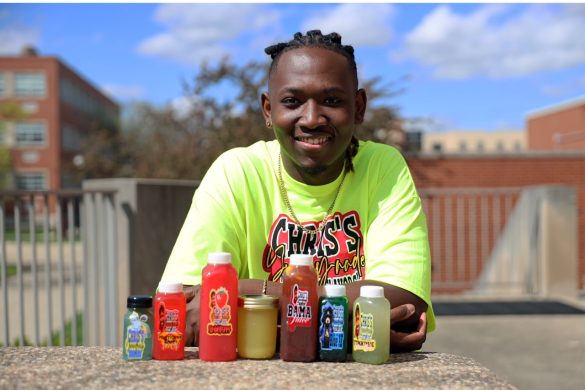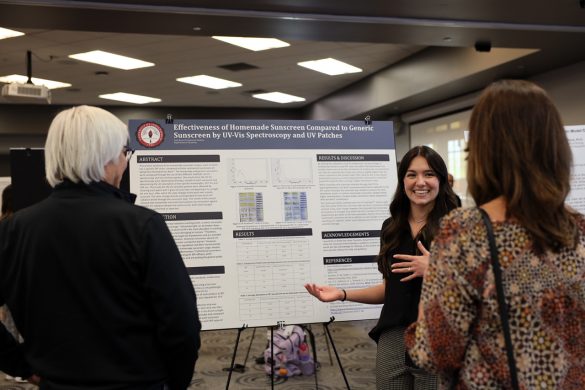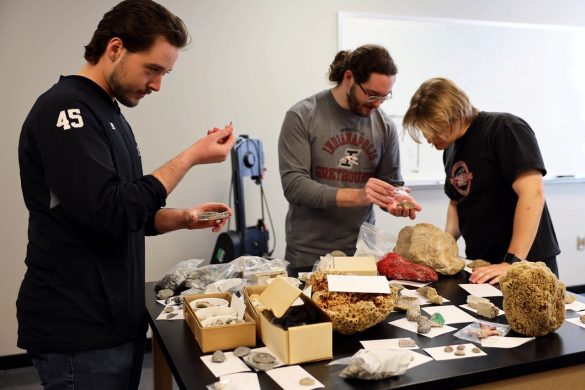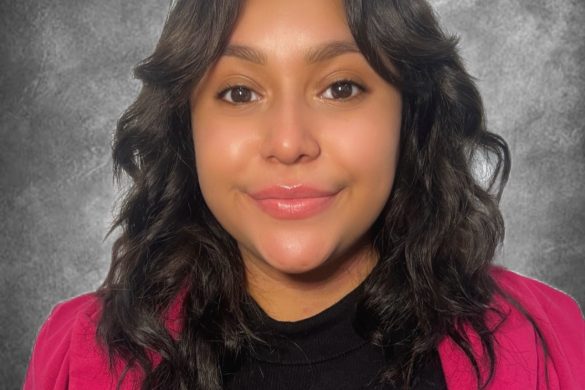Medicins Sans Frontieres Doctors Without Borders is an organization that sends doctors and nurses around the world to provide life-saving medical humanitarian care for those who would otherwise go without it. Doctors Without Borders is a new Registered Student Organization at the University of Indianapolis that advocates for the actual Doctors Without Borders organization. Sophomore nursing major and Doctors Without Borders President Jennah Koenig started the RSO because she wanted to educate students. However, she said she was not aware that more than just doctors could get involved with the organization. By starting the organization, she said she wanted to make others aware of that too.
“I didn’t know nurses could do it. I thought you had to be a doctor,” Koenig said. “So, I was shocked and I doubt there’s a lot of people out there who know that nurses can do it as well as PT, OT, psychology people. Really, anyone can help with it. I created the club in order to advocate and let people know that it’s an option for their future, instead of just thinking it’s just for doctors.”
Koenig said that in order to make Doctors Without Borders an RSO, she had to email the headquarters in New York and sign a number of contracts in order to become a part of the nationwide organization. She said it took quite a bit of time, due to the amount of communication that had to occur.
 Graphic by Noah Crenshaw and Jayden Kennett
Graphic by Noah Crenshaw and Jayden Kennett Sophomore nursing major and Vice President Tatum Howell said that she also helped in this process. Howell said that she got involved because she has been friends with Koenig since high school, and Koenig reached out to her for support. Howell also said that since they began the RSO, they have had a number of fundraisers, such as on campus events and dine and donates to spread the word about their RSO and to help raise money.
“So, the money [raised] goes directly to Doctors Without Borders. Our RSO fund does not get any of it.” Howell said. “We just donate to them. So [if] there’s crisis situations in the world, they will send people there and they will go there.And this money just kind of helps them be able to send more people and supplies to places that they need them.”
The money donated to Doctors Without Borders is allocated to three things: 89.4 percent of the money is used for programs, 1.5 percent of it is used for management purposes and the remaining 9.1 percent is used for more fundraising.
Freshman biology and chemistry major and Assistant to the Event Programmer Caylie Wimmersberger said that she got involved with Doctors Without Borders when she saw the table at Welcome Week. Wimmersberger said that she has always kept up with Doctors Without Borders and that being able to be a part of the RSO and making a difference is important to her.
“My favorite part is to be able to raise money and raise awareness for something outside of the university, especially something like an international organization,” Wimmersberger said. “So, that’s my favorite part of that. At least just being something, being part of something that’s much bigger and getting to be part of the board itself. So to be part of that group of people that gets to make that, even if it’s a small difference [is my favorite].”
“I created the club in order to advocate and let people know that it’s an option…”
According to Koenig, they have adopted the goal of advocacy from the national organization, and they have also adopted their own goal of fundraising. They hold events on-campus along with having a web page from which they fundraise.
“So it’s a little bit more unexpected that it[the RSO] would be here, Wimmersberger said. “But, I think that since it’s become part of our smaller campus, I think it’s important just it kind of shows that we’re kind of thinking outside the box and trying to be a part of global organizations. So I think that’s why it’s important to have it here on campus to introduce that.”







